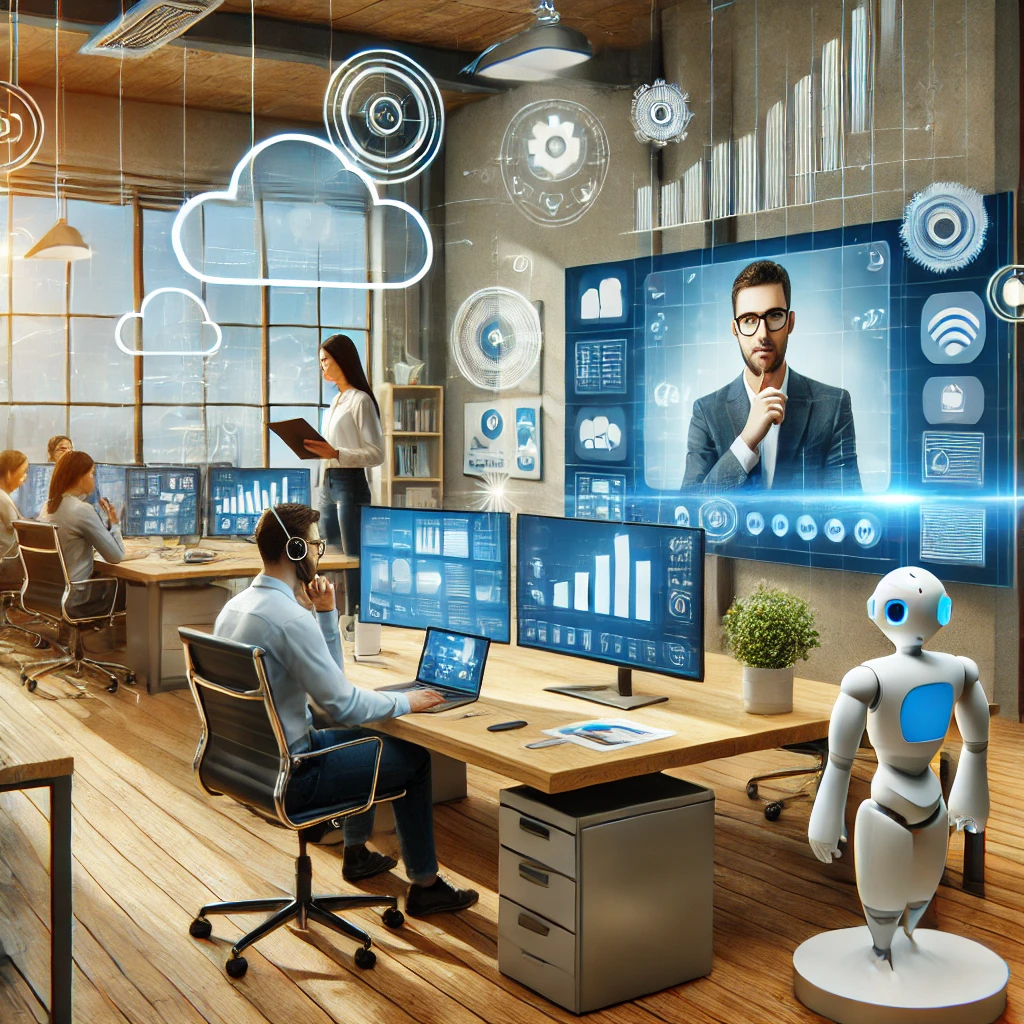

In recent years, technology has transformed nearly every aspect of the workplace, creating new opportunities and redefining traditional roles. Technologies like artificial intelligence (AI), machine learning (ML), and cloud computing are not only changing the way work is done but also paving the way for entirely new career fields. As businesses adapt to this wave of innovation, they are finding themselves more connected, more efficient, and more dynamic than ever before.
One of the most noticeable shifts has been the rise of remote work. Cloud computing allows employees to access their files and projects from anywhere in the world, eliminating the need for a central office. With powerful communication tools and platforms, workers can collaborate in real time, no matter the physical distance. This new remote-work era has redefined what it means to be "at work," making careers more flexible and accessible to a broader range of talent.
Artificial intelligence and machine learning are also making their mark, automating repetitive tasks and providing powerful insights through data analysis. These technologies enhance productivity by taking over mundane tasks, allowing employees to focus on more strategic, creative work. In sectors such as marketing, finance, and customer service, AI-powered tools are transforming how decisions are made and how customer interactions are managed.
Along with these advancements, workplace productivity tools have evolved significantly. Today's employees rely on project management software, cloud-based collaboration tools, and AI-driven systems to streamline workflows and increase efficiency. These tools not only help teams stay organized but also provide real-time updates and analytics that help businesses stay agile in a fast-paced world.
The rise of these technologies has also led to the emergence of new career paths. Fields such as data science, AI development, and cloud engineering have grown rapidly, driven by the demand for specialized skills to manage, develop, and innovate with new technologies. Careers that didn't exist a decade ago are now some of the most sought-after, offering exciting opportunities for those with the right expertise.
Employee engagement is another area where technology is making a significant impact. Virtual reality (VR) and augmented reality (AR) are being used for training and collaboration, creating immersive environments that mimic real-life scenarios. These tools enhance learning and development, making it easier for employees to acquire new skills and adapt to changing roles within the organization.
Technology is also fostering a stronger sense of connection among employees, even in remote work settings. Video conferencing, instant messaging, and virtual workspaces have replaced traditional face-to-face interactions, enabling more frequent and dynamic communication. As a result, employees feel more engaged and involved, regardless of where they are located.
As these trends continue to evolve, the future workplace will likely become even more dynamic and tech-driven. Innovations in AI, cloud computing, and VR will continue to shape the way we work, offering more flexibility and new possibilities for career growth. For businesses, embracing these technologies is not just an option—it’s a necessity to remain competitive in the modern world.
It's astonishing to see how tech is becoming a part of everyday life.
There are no comments yet, the first one can be written.
Add a comment